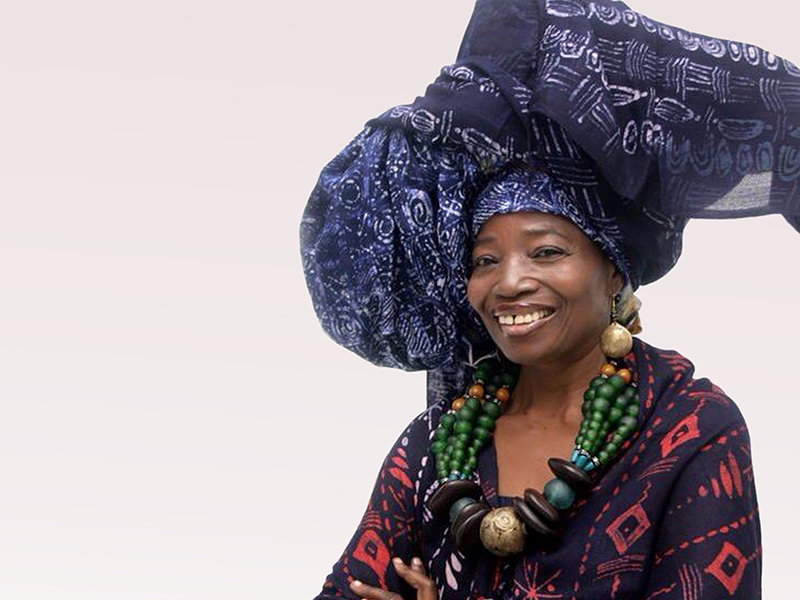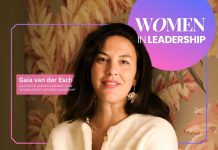Click here to download your free copy of the Female Leadership in Our Time
ON GENDER AND SOCIETY
You may call me a socio-customary deviant. From my early years I started to notice and question the disparity in treatment between men and women in my immediate community, my immediate family inclusive. My father extended that same disparity to me after the death of my mum. There were only two of us, I had a younger male sibling, Joseph, who has now passed away. I rightly thought then that my father liked Joseph more than I: I did all the hard domestic jobs while Joseph would play around and would still be favoured with all the good things.
When I was 13, I discovered that my father had arranged to marry me off to a rich local politician in my village. What was my father’s reason for trying to force me into an early marriage? He was to use the dowry to pay for Joseph’s education, and marry a wife for Joseph. At that early age, I saw that attempt to force me into child marriage as a violation of my basic right to self-determination. I saw early marriage as a bar to a successful life because I had seen suffering in the lives of young girls in my village who had been forced into early marriages. Running away from my father was a quick option to avoid early marriage and a route to a better alternative else where. That was the hardest decision I have ever taken in life. I knew that it was not going to be easy and that there would be challenges along the way.
ON THE ROAD TO ART
Yes! One of the challenges in my adolescent life was what appeared to many to be a jump into a polygamous marriage. I unwittingly became part of a polygamous family because I was promised a job as a trainee dancer/singer in a dance troupe owned by a man who became my my master/husband. I was forced and tricked into marrying my master who had promised to give me care and fatherly protection, which I missed as a child.
As it happened my master/husband was one of those who benefited largely from what later became “The Osogbo Art Movement” which was put together by Mrs. Georgina Bier. My husband would sometime call upon me to do some drawings for him in his art studio because he often told me that I was naturally good at drawing, only to the envy of my co-wives. While, this ugly situation was playing out between my master/husband and I, I learnt about an Austrian artist living in Osogbo, Susanne Wenger. I had several secret meetings with Susan Wenger. My master/husband was unaware of those visits. Susanne Wenger became my mentor and encouraged my development in Batik making, a technique I discovered by accident in my youth. This development became a very successful new page in my life. The Batik making and the Yoruba Adire textile making which I learnt from my great grand mother became the pivotal event of my success in life. Living in polygamous setting was most uncomfortable but my inner mind continued to tell me to be patient and remain steadfast.
EMERGING AS A FEMALE ARTIST
Being a female artist in Osogbo was a difficult experience because Osogbo art scene was and is still dominated by men. Being chosen as the only woman among a group of all men artists to do a tour of the USA came as a divine gift: that trip exposed me to more radical art forms such as quilting, embroidery, beads & wood decorations, painting on canvas & paper, etc. In fact, my exploit in the USA made me rethink how to employ other media in my artistic expressions, being a textile artist alone was quite restrictive. On my return from the USA, I decided to venture into painting on canvas and on paper, and finishing my works up with pen and ink. I decided to make my paintings unique by embellishing my works with traditional Yoruba Adire symbols. I did some few works with beads and did some quilts using the Yoruba Adire fabrics. My new artworks stood out as positive milestone in my life. As my work started attracting commanding interests from art collectors I started to face stiff opposition from my male counterparts in Oshogho who complained that I was venturing into areas of art that was exclusively for men. Other allegations made to the police about me and my work were resolved but my spirit continued to tell me that I should not be distracted by the bad things people said about me if I wanted to succeed in life.
Having said all that, women artists’ position in Nigeria has changed radically. With more education of women in this country, women are now able to express themselves more radically in their creativities without fear of being maligned. It has become more evident therefore, for women to leave their traditional roles. Education of women created a platform for women’s emancipation in art. However, some married women artists still need the cooperation of their husbands in order to practise their profession. But some of us are lucky to marry men who are naturally understanding and cooperative. However, large scale education of our people will help to eliminate the phenomenon of restricting our women to their traditional roles of being house wives, house keepers and raising children.
ON BEING A SOCIAL ENTREPRENEUR
Seeing young girls walking the streets everyday suffering aimlessly without hopes for the future always reminded me of my own beginnings and this drove me to my first project in Oshogbo in 1982. I then opened up my home for 20 young girls. I provided them with food and art materials and I began teaching them how to do batik, Yoruba Adire, Embroidery and traditional weaving. My aim was to provide them with the opportunity of earning decent incomes by using their hands instead of marching the streets aimlessly and sometimes exposing themselves to sexual abuses. That scenario led to my establishing a formal art centre at Osogbo in 1982. Today, I now have such centres also at Abuja, and Ogidi in Kogi State. I also established these centres in order to provide suitable studio spaces for our women to come and use free of charge to do their artworks. Any artwork they do in the centres’ workshops belong to them. Whatever money they realised from the sale of their artworks also belong to them. These centres now train young Nigerian men and women in all forms of art free of charge.
Yes! Income is key to decent living and decent living provide the necessary tools for a woman to occupy her rightful and respectable positions in the society. The saying is that, when you train and emancipate a woman you have emancipated the whole society. Knowledge is wealth. What I have always done in my life, is to provide that knowledge to our women especially our neglected rural women using art as my main tool.
ON THE SUCCESS OF NIKE ART GALLERY
Art curating is all involving. I have very serious passion for art management. I think it is inborn in me. It is one of those things that I do best. In my early age, I developed that instinct and the ability to choose what is best for me and what I think others will admire. Curating an art gallery is not different from building a good structure that can function to meet a set goal. This involves an interplay of good coordination of the few resources that are available to me. In a particular sense, the artworks in the gallery must be well arranged in such a way that they are able to tell good stories of themselves to viewers at any point in time. I always move these artworks around from time to time so that I am always able to bring to focus the beauty of the artworks.
ON THE FUTURE OF NIGERIAN ART
One of the best ways to enhance the works of Nigeria artists world wide, is for artists to continue to creat more works. Continued creativity provides golden opportunity for artists to improve on their works. Nigerian artists must also endeavour to travel and interact with other foreign artists so that they can exchange notes with a view to developing themselves. Nigerian artists must also work hard to organise regular exhibitions of their works.
ON NIGERIAN FEMALE ARTISTS
I will advise Nigerian female artists to hold firmly to their styles and art forms. I believe that if you develop your signature art forms and people are comfortable with that art forms, your works will be looked for by those who admire your works. I shy away from those artists who change their styles irreverently. I advocate that artists should develop their art signatures and stand by it at all times. However, I appreciate that my view is debatable and open for other discussions.
ON FUTURE CHALLENGES
My final goal is to build a “Nike Art Village” at Abuja on the big parcel of land I acquired from the government some few years ago. This my Art Village will feature the following; an ultra modern art gallery, an open play ground, a large ultra modern library, a 2500 seats conference centre, a traditional textile museum, a 4 state of the art cinema halls, a 1500 seats amphitheatre, a 150 luxury bedrooms guesthouse, swimming pool, club-house and staff quarters. Estimated cost of construction is put at $360m. Investors are now being invited to participate in this venture that promises to be one of its kind in Africa.
I WOULD NOT LEAVE HOME WITHOUT…
(a) my pen and ink (b) canvas & paper (c) my wisdom to guide me. However, my wisdom to guide me is a constant factor.
Click here to download your free copy of the Female Leadership in Our Time



































